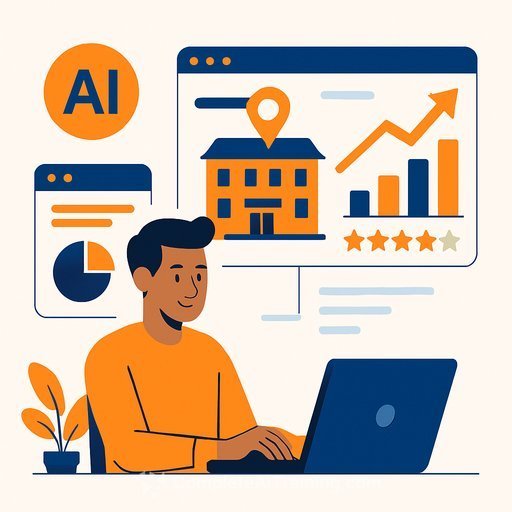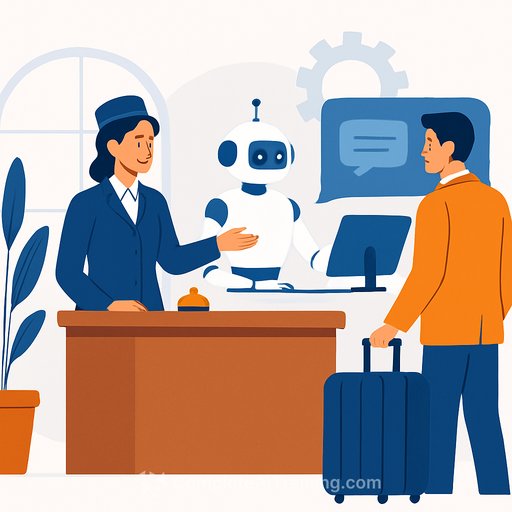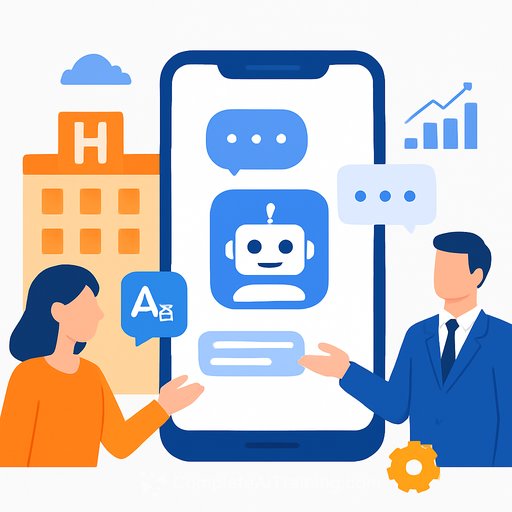Cloudbeds Expands AI Platform to Help Hotels Boost Occupancy and RevPAR
Date: 9.23.2025
Cloudbeds has rolled out advanced revenue intelligence and guest marketing features for Signals, its hospitality-focused AI foundation model. Built on causal AI that processes 4 billion data points per hour, Signals helps hotels act with confidence in shorter booking windows, softer markets, and a post-revenge-travel slowdown.
Why this matters for hotel and event leaders
COVID-19 broke the reliability of historical data, and the demand surge that followed is tapering. Traditional forecasting often lands in the 50-70% accuracy range, which is not enough when margins are tight and lead times are shrinking.
Signals focuses on cause-and-effect so you know what actually moves demand, not what happens to correlate. That clarity helps teams adjust rates, deploy campaigns, and align operations faster.
What Signals does differently
Most systems spot correlations. Signals applies causal AI to estimate the real impact of rate changes, campaigns, or new events on your market. It also uses a "time surface of booking data" to analyze both stay dates and booking dates together, surfacing correlated days for smarter projections.
Cloudbeds reports up to 95% forecasting accuracy over 90-day periods, with strong results in the critical seven-day window.
- Data sources: competitor rates, event feeds, weather, booking behaviors, and marketing performance
- Outputs: demand predictions, causal drivers, and recommended actions for revenue and marketing
Proof in market: measurable gains
Mercure Paddington Hotel (London) used Signals across revenue and marketing during a tough January and produced standout results with targeted email and strategic rate moves.
- Occupancy: 93% vs. competitor set average of 64%
- RevPAR: £120 vs. competitor set average of £79
- Outcome drivers: segmented mailers + data-driven rate strategy
Personalization that drives direct revenue
Signals converts guest behavior and booking patterns into relevant content, offers, and communications from first touch to post-stay. That boosts conversion while keeping costs in check.
Bespoke Hotels began with zero guest data after acquiring 40 properties. Using Wi-Fi capture and Signals-driven segmentation (coastal, rural, seasonal), it filled demand gaps, timed outreach, and generated targeted content-resulting in £1 million in revenue in one year and 20% open rates on highly segmented campaigns.
What sets Signals apart
- Hospitality-first foundation model (built with and for hoteliers)
- 4 billion data points processed hourly
- Causal AI framework modeling cause-and-effect relationships
- Unified revenue and marketing intelligence
- Proprietary hospitality data treatment and time surface technology
Beyond revenue: platform-wide intelligence
Signals powers guest sentiment analysis, review categorization, digital marketing optimization, and enterprise search across the Cloudbeds platform. Teams can ask natural language questions and surface insights from both structured and unstructured data.
Leader perspectives
"AI will define the future of hospitality, but only if it truly understands hospitality," said Adam Harris, CEO and Co-Founder of Cloudbeds. "Signals is the first foundation model built with and for hoteliers, trained on billions of real booking, guest, and market signals. It predicts demand, but better yet-it explains it."
"Hotels are experiencing a fundamental shift where traditional approaches are failing," said Amit Popat, Head of Machine Learning at Cloudbeds. "Signals delivers actionable intelligence that empowers hoteliers to make instant decisions with confidence."
Practical playbook: get value fast
- Connect data feeds: PMS, CRS/IBE, rate shopping, event calendars, weather, and marketing performance.
- Set clear goals: occupancy lift in next 7 days, ADR protection on high-demand dates, RevPAR growth vs. comp set.
- Use causal drivers: adjust rates and campaigns based on drivers that move demand (not just correlations).
- Run weekly sprints: review 7-day outlook, accept/reject recommendations, deploy segmented email and paid media.
- Capture zero-party data: Wi-Fi and post-stay forms to fuel segmentation and content relevance.
- Close the loop: measure pickup by segment and channel; refine pricing and creative accordingly.
Addressing the data gap
Generic large language models (e.g., ChatGPT) contain very little hospitality-specific data (~0.004%). Cloudbeds has spent over a decade collecting and structuring operational, revenue, marketing, and guest signals to remove silos and improve decision quality.
Want your team fluent in AI for hospitality?
If you're building capability across revenue, marketing, and ops, explore role-based AI learning paths here: AI courses by job.
Your membership also unlocks:






